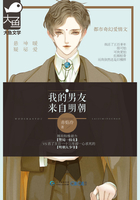Pulcheria Alexandrovna was delighted to give her blessing to Dounia's marriage with Razumihin; but after the marriage she became even more melancholy and anxious. To give her pleasure Razumihin told her how Raskolnikov had looked after the poor student and his decrepit father and how a year ago he had been burnt and injured in rescuing two little children from a fire. These two pieces of news excited Pulcheria Alexandrovna's disordered imagination almost to ecstasy. She was continually talking about them, even entering into conversation with strangers in the street, though Dounia always accompanied her. In public conveyances and shops, wherever she could capture a listener, she would begin the discourse about her son, his article, how he had helped the student, how he had been burnt at the fire, and so on! Dounia did not know how to restrain her. Apart from the danger of her morbid excitement, there was the risk of some one's recalling Raskolnikov's name and speaking of the recent trial.
Pulcheria Alexandrovna found out the address of the mother of the two children her son had saved and insisted on going to see her.
At last her restlessness reached an extreme point. She would sometimes begin to cry suddenly and was often ill and feverishly delirious. One morning she declared that by her reckoning Rodya ought soon to be home, that she remembered when he said good-bye to her he said that they must expect him back in nine months. She began to prepare for his coming, began to do up her room for him, to clean the furniture, to wash and put up new hangings and so on. Dounia was anxious, but said nothing and helped her to arrange the room. After a fatiguing day spent in continual fancies, in joyful day dreams and tears, Pulcheria Alexandrovna was taken ill in the night and by morning she was feverish and delirious. It was brain fever. She died within a fortnight. In her delirium she dropped words which showed that she knew a great deal more about her son's terrible fate than they had supposed.
For a long time Raskolnikov did not know of his mother's death, though a regular correspondence had been maintained from the time he reached Siberia. It was carried on by means of Sonia, who wrote every month to the Razumihins and received an answer with unfailing regularity. At first they found Sonia's letters dry and unsatisfactory, but later on they came to the conclusion that the letters could not be better, for from these letters they received a complete picture of their unfortunate brother's life. Sonia's letters were full of the most matter of fact detail, the simplest and clearest description of all Raskolnikov's surroundings as a convict. There was no word of her own hopes, no conjecture as to the future, no description of her feelings. Instead of any attempt to interpret his state of mind and inner life, she gave the simple facts-that is, his own words, an exact account of his health, what he asked for at their interviews, what commission he gave her and so on. All these facts she gave with extraordinary minuteness. The picture of their unhappy brother stood out at last with great clearness and precision. There could be no mistake, because nothing was given but facts.
But Dounia and husband could get little comfort out of the news, especially at first. Sonia wrote that he was constantly sullen and not ready to talk, that he scarcely seemed interested in the news she gave him from their letters, that he sometimes asked after his mother and that when, seeing that he had guessed the truth, she told him at last of her death, she was surprised to find that he did not seem greatly affected by it, not externally at any rate. She told them that, although he seemed so wrapped up in himself and, as it were, shut himself off from every one- he took a very direct and simple view of his new life; that he understood his position, expected nothing better for the time, had no ill-founded hopes (as is so common in his position) and scarcely seemed surprised at anything in his surroundings, so unlike anything he had known before. She wrote that his health was satisfactory; he did his work without shirking or seeking to do more; he was almost indifferent about food, but except on Sundays and holidays the food was so bad that at last he had been glad to accept some money from her, Sonia, to have his own tea every day. He begged her not to trouble about anything else, declaring that all this fuss about him only annoyed him. Sonia wrote further that in prison he shared the same room with the rest, that she had not seen the inside of their barracks, but concluded that they were crowded, miserable and unhealthy; that he slept on a plank bed with a rug under him and was unwilling to make any other arrangement. But that he lived so poorly and roughly, not from any plan or design, but simply from inattention and indifference.
Sonia wrote simply that he had at first shown no interest in her visits, had almost been vexed with her indeed for coming, unwilling to talk and rude to her. But that in the end these visits had become a habit and almost a necessity for him, so that he was positively distressed when she was ill for some days and could not visit him. She used to see him on holidays at the prison gates or in the guard-room, to which he was brought for a few minutes to see her. On working days she would go to see him at work either at the workshops or at the brick kilns, or at the sheds on the banks of the Irtish.
About herself, Sonia wrote that she had succeeded in making some acquaintances in the town, that she did sewing, and, as there was scarcely a dressmaker in the town, she was looked upon as an indispensable person in many houses. But she did not mention that the authorities were, through her, interested in Raskolnikov; that his task was lightened and so on.
At last the news came (Dounia had indeed noticed signs of alarm and uneasiness in the preceding letters) that he held aloof from every one, that his fellow prisoners did not like him, that he kept silent for days at a time and was becoming very pale. In the last letter Sonia wrote that he had been taken very seriously ill and was in the convict ward of the hospital.















